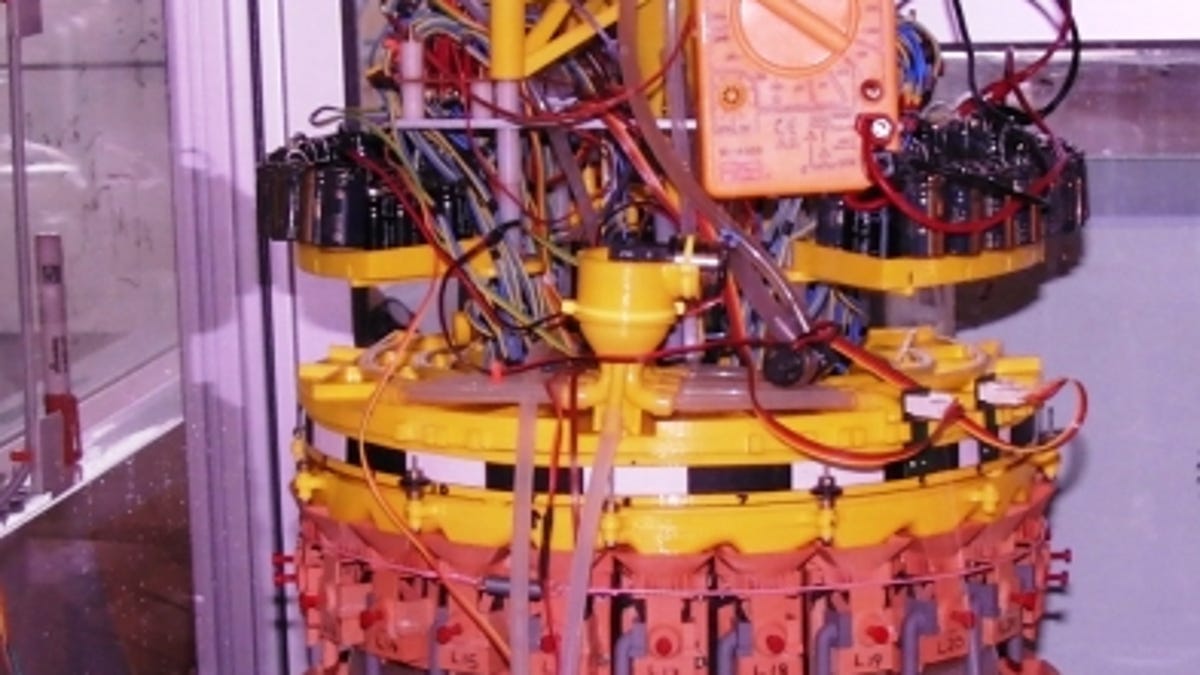Holy crap! Scientists create pooping robot
Bristol Robotics Laboratory boffins threaten to unleash their EcoBot-III pooping robot on the world. The Ig Nobel Prize is in the bag.

One good robot deserves another. That's why Japan's robot toilets would love a British bot that poops with clockwork regularity.
Ioannis Ieropoulos and other researchers at Bristol Robotics Laboratory in the U.K. have created a marvel of modern science--a robot that can feed on biomass and excrete waste. The EcoBot III has an artificial gut that allows it to survive on fluid food and water for seven days without human intervention.
The robot is powered by 48 small microbial fuel cells (MFCs) and moves along a steel track between sources of liquid food and water (see time-lapse video here).
The liquid food contains yeast extracts, minerals, and salt. The MFCs repeatedly digest and then recycle the food, producing hydrogen and electricity in the process. Once every 24 hours, the recycled food is pushed through a peristaltic pump into a litter tray, making EcoBot III the first poop-bot of its kind.
"Diarrhea-bot would be more appropriate," lab director Chris Melhuish told New Scientist. "It's not exactly knocking out rabbit pellets."
If you think self-feeding robots are terrifying, EcoBot III can only extract about 1 percent of its food's chemical energy even after repeated recycling. So human flesh is off the menu for now.
The researchers are interested in whether MFCs can be used to purify sewer water. Meanwhile, a research paper they have written is being presented to the Artificial Life XII conference in Denmark next month.
One thing that might give EcoBot its creators indigestion is the fact that they're a shoo-in for an Ig Nobel Prize, which honors research that "make people laugh and then think."

